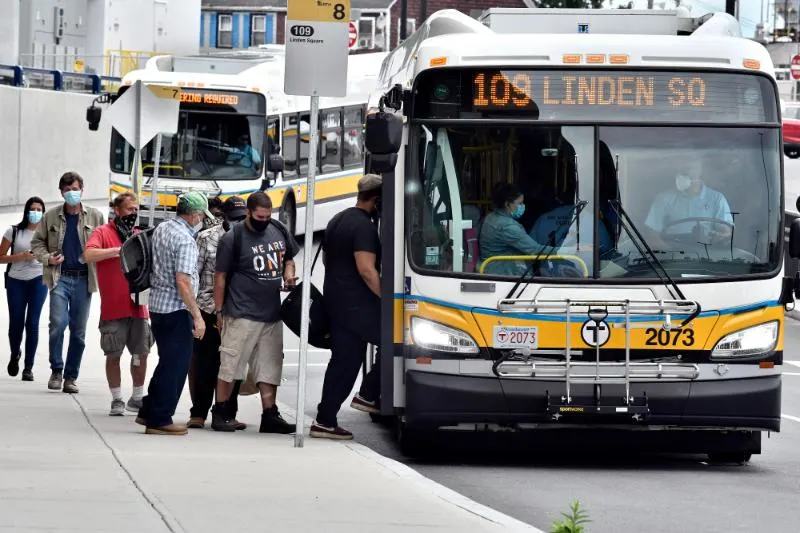Ready to conquer your public transportation fears and master the 109 Bus Schedule? Hitch a ride on this blog post, where we navigate through timings, cover every twist and turn of the routes, and pull up at all the crucial stops on this popular commute. No more missing buses or facing unexpected detours- let’s make your everyday journey as smooth as your favorite bus ride ever!
Buckle up for an invaluable guide intended to maximize your productivity and minimize travel woes. Because in the world of public transport, knowledge is indeed power – and your ticket to a seamless journey. The 109 bus is a popular route that operates from Chester Transportation Center to 69th Street Transportation Center, serving Springfield and Lansdowne. While specific schedule information may not be available on our website, we recommend using the Find My Stop tool or referring to the official transit authority’s website for the most up-to-date and accurate schedule information.
Table of Contents
Detailed 109 Bus Route

Let’s dive into the detailed route of the 109 bus, which runs from the Chester Transportation Center to the 69th Street Transportation Center. This bus serves the areas of Springfield and Lansdowne, providing a convenient public transportation option for residents and commuters in those areas.
The 109 bus route operates as a Night Owl Service, meaning it runs after midnight, ensuring that people who rely on public transportation late at night have a reliable mode of travel. While specific stops along the route are not listed, you can easily find them by using the Find My Stop tool available on the website. This tool allows you to enter your location or destination and provides you with the nearest bus stops along the 109 route.
It’s important to note that for more detailed information about the schedule and timings of the 109 bus, you can refer to the Bus Route 109 Timetable or the Schedule by Stop (PDF). These resources will offer you a comprehensive overview of when and where the bus departs and arrives at various stops along its route. Make sure to familiarize yourself with these schedules to plan your trips effectively. Now that we have explored the details of the 109 bus route let’s take a closer look at one segment of this route, specifically, from the Chester Transportation Center to the 69th Street Transportation Center.
From Chester Transportation Center to 69th Street Transportation Center

The journey from Chester Transportation Center to 69th Street Transportation Center is an integral part of the 109 bus route. It connects two key transportation hubs and travels through various neighborhoods, ensuring connectivity for countless individuals every day. Imagine starting your commute from Chester Transportation Center, a major transit hub bustling with activity. As you board the 109 bus, you’ll embark on a journey that takes you through vibrant communities like Springfield and Lansdowne.
Along this route, you’ll witness the diverse sights and sounds of these areas, experiencing their unique atmosphere firsthand. Whether it’s passing by local shops or seeing people going about their daily lives, the trip offers a glimpse into the tapestry of these neighborhoods. The bus continues on its way, navigating through the busy streets and making scheduled stops at various points.
Each stop serves as a potential pick-up or drop-off location for passengers, connecting them to schools, workplaces, shopping centers, or even leisure destinations such as parks or entertainment venues. The journey culminates at the 69th Street Transportation Center, another bustling transit hub that provides convenient connections to other bus routes and regional rail lines. Here, you have the option to transfer to other modes of public transportation or explore nearby attractions and amenities.
As we’ve explored the detailed route of the 109 bus and highlighted the journey from Chester Transportation Center to 69th Street Transportation Center, it becomes clear that this bus route plays a vital role in keeping communities connected and facilitating travel for countless individuals. Weekday and Weekend Schedules Navigating public transportation can often be a source of confusion, especially when it comes to understanding the schedules and routes of different bus services. The 109 Bus is no exception. To ensure a smooth commuting experience, it’s crucial to familiarize oneself with the weekday and weekend schedules of the 109 Bus.
On weekdays, the 109 Bus follows a specific timetable designed to accommodate the rush-hour commute and regular business hours. This means that the frequency of buses might be higher during mornings and evenings when more people rely on public transportation to get to work or school. With these timings in mind, passengers can plan their journeys accordingly, ensuring they don’t miss their desired bus.
For example, if you’re a student with early morning classes or an office worker with a 9-to-5 job, it’s important to check for the first departure time in the morning and subsequent frequencies throughout the day. Being aware of these details allows you to plan your day effectively and arrive at your destination on time. Weekend schedules, on the other hand, tend to differ slightly from weekday schedules. While there may be fewer commuters during weekends, this doesn’t mean that bus services are reduced or halted entirely. Instead, adjustments are made to cater to a potentially different set of passengers with varied travel needs.
Understanding the differences between weekday and weekend schedules avoids any unexpected surprises and ensures a stress-free weekend journey. Now that we have a clear grasp of the weekday and weekend schedules, let’s explore how service times and frequencies play significant roles in determining when and how frequently buses run.
Distinguishing Service Times and Frequencies

When it comes to public transportation, knowing both service times and frequencies are essential for effective trip planning. Let’s take a closer look at these two concepts for the 109 Bus. Service times refers to the total duration during which the 109 Bus operates.
Understanding the service times allows commuters to plan their trips in advance and ensure they catch a bus within the operational period. For example, if you need to travel early in the morning or late at night, it’s important to know whether the 109 Bus provides service during those hours. Frequencies, on the other hand, refer to how often the 109 Bus runs. This information is crucial for estimating wait times at bus stops. Higher frequencies mean shorter waiting periods between buses, providing convenience and flexibility for passengers. It’s worth noting that frequencies can vary depending on factors such as peak hours, weekdays versus weekends, and overall demand.
For instance, during peak hours on weekdays, when more people are commuting, the 109 Bus may have higher frequencies compared to midday or evening schedules. Knowing this can help you plan your commute better and minimize potential delays. By combining knowledge of both service times and frequencies, commuters can make informed decisions about when to catch a particular bus and optimize their journey based on their schedule and needs. Having established a clear understanding of service times and frequencies, we can now move on to explore specific stops and intersections along the route of the 109 Bus.
Specific Stops and Intersections
When it comes to navigating the city using public transportation, specific stops and intersections play a crucial role in ensuring a smooth and efficient commute. The 109 bus route travels through various stops and intersections, connecting different neighborhoods and key destinations. Let’s explore some of these specific stops and intersections that you can expect along the 109 bus route. One notable stop along the 109 bus route is Linden Square, which serves as the starting point for this journey. Located at the heart of the city, Linden Square provides easy access to shopping centers, restaurants, and other local attractions.
Passengers can hop on the bus here and embark on their journey through various neighborhoods. As you travel further along the route, you’ll encounter Brighton Center, an important intersection that serves as a hub for multiple bus routes. Here, passengers can transfer to other buses if needed or continue their journey on the 109 bus to reach their desired destination. Brighton Center also offers amenities like shops, cafes, and community services, making it a convenient place to pause during your commute.
Continuing on, the 109 bus route takes you through Oak Square, another significant stop along this route. Nestled in a vibrant neighborhood, Oak Square offers access to local businesses, parks, and recreational facilities. It serves as a gateway between different parts of the city and provides commuters with opportunities to explore diverse surroundings.
Moving onwards, the bus travels through various other stops such as Kenmore Square and Storrow Drive, both bustling areas with their unique offerings. Kenmore Square is known for its vibrant atmosphere and connection to Boston University while Storrow Drive offers scenic views of the Charles River. Along its course, the 109 bus route ensures that residents have access to essential facilities like hospitals and educational institutions. This includes stops near renowned establishments such as Longwood Medical Area and Northeastern University, catering to the needs of students, faculty, and the broader community. For instance, imagine a student studying at Northeastern University who relies on the 109 bus to commute. They can conveniently board the bus near campus and navigate their way through different neighborhoods, accessing various stops that enhance their daily routine.
The specific stops and intersections along the 109 bus route encompass the unique essence of each neighborhood they serve. Whether it’s for work, education, or leisure activities, these stops provide commuters with seamless travel options while allowing them to explore all that the city has to offer. Now that we have explored some of the specific stops and intersections along the 109 bus route let’s focus on two important stops—Springfield and Lansdowne—which hold their own significance within this public transportation network.
Including Springfield and Lansdowne Stops When traveling along the 109 bus route, two stops that capture attention are Springfield and Lansdowne. These stops offer distinct experiences and connections to key areas in the city. Springfield is a stop located in a diverse neighborhood known for its vibrant cultural scene. It provides convenient access to local businesses, parks, and community centers.
Whether you’re looking for a cozy coffee shop or seeking out unique shops and boutiques, Springfield offers an array of options to explore during your journey on the 109 bus. On the other hand, Lansdowne is an essential stop for sports enthusiasts and music lovers alike. Situated near Fenway Park, home of the Boston Red Sox baseball team, Lansdowne offers an atmosphere filled with excitement on game days.
Additionally, this stop provides access to various music venues, including the iconic House of Blues. If you’re attending a concert or enjoying an afternoon cheering on your favorite team, Lansdowne is a must-visit stop along your route. Imagine being a die-hard baseball fan and having tickets to attend a Red Sox game at Fenway Park. Taking the 109 bus, you can get off at the Lansdowne stop, soak in the electric atmosphere of the area, enjoy pre-game festivities, and cheer on your team throughout the match. It’s an experience that combines public transportation with the excitement of live sports.
These specific stops, Springfield and Lansdowne, exemplify how the 109 bus route serves as more than just a means of transportation. It connects commuters to distinctive destinations that showcase the diverse essence of the city. Having explored specific stops and intersections along the 109 bus route, we’ll now dive into another important aspect: understanding the Night Owl service provided by this route.
The 109 bus route offers two standout stops, Springfield and Lansdowne, that provide unique experiences and connections to key areas in the city. Springfield is a diverse neighborhood with a vibrant cultural scene, offering a variety of local businesses, parks, and community centers to explore. Lansdowne, on the other hand, is a must-visit stop for sports enthusiasts and music lovers.
Located near Fenway Park, it provides access to the excitement of game days and various music venues such as the House of Blues. These stops exemplify how the 109 bus route goes beyond being just a mode of transportation. It connects commuters to distinctive destinations that showcase the diverse essence of the city. Whether you’re looking for cultural exploration or entertainment, the 109 bus route has something to offer.
Additionally, understanding the Night Owl service provided by this route is important. It allows for convenient transportation during late hours, ensuring that commuters can still rely on the 109 bus even after regular operating hours.
Night Owl Service Explanation

Public transportation plays a vital role in ensuring that people can move around efficiently and conveniently, even during the late hours of the night. This is where the concept of Night Owl Service comes into play. Night Owl Service refers to bus routes that continue to operate after midnight, providing transportation options for individuals who work late shifts, students pulling all-nighters, or those who simply enjoy the nightlife.
Imagine you are a student studying at a university campus in Philadelphia. It’s nearing midnight, and you’ve just finished an intense study session at the library. Without access to reliable transportation, getting back home safely and conveniently would be quite challenging. However, thanks to Night Owl Service provided by SEPTA (Southeastern Pennsylvania Transportation Authority), you have the option of taking the 109 Bus Route that continues running after midnight.
The Night Owl Service is specifically designed to cater to the needs of passengers during late night hours when regular bus services may not be available or scheduled less frequently. These services typically operate with modified routes and time schedules to meet the demand for essential transportation during these hours.
Think of Night Owl Service as your guardian angel in the dark, ensuring that you can still catch a bus home even when it seems like the city is asleep. Now, let’s take a closer look at how the Night Owl Service operates on Bus Route 109. This particular route goes from Chester Transportation Center to 69th Street Transportation Center, serving Springfield and Lansdowne along the way.
The specific stops for this route are not currently listed, but you can utilize SEPTA’s “Find My Stop” tool for up-to-date information about stops on this route. Picture yourself boarding the 109 Bus at Chester Transportation Center after midnight – you’ll notice that despite the late hour, there are still fellow passengers making their way to various destinations.
This service ensures that you can travel safely during the night, connecting you to key transportation hubs like 69th Street Transportation Center, where you can easily transfer to other bus routes or even the subway system. Just like regular bus services, Night Owl Service operates on a published timetable and schedule. You can find the specific timetable and schedule for the Bus Route 109 Night Owl Service on the SEPTA website, allowing you to plan your late-night travels with ease.
In conclusion, Night Owl Service plays a crucial role in providing reliable and convenient transportation options during the late hours of the night. It ensures that individuals have access to safe and efficient public transportation, catering to their needs even outside of regular operating hours.
So whether you’re a night owl who enjoys exploring the city after dark or someone who relies on late-night transportation for work or study purposes, Night Owl Service is there to support you in navigating the city when others are resting.
● According to transportation data, bus schedules are typically updated every 6 months, but it significantly depends on the specific route and city.
● The American Public Transportation Association revealed that 45% of bus riders plan their transit around bus schedules in metropolitan areas.
● Research from a study conducted by Moovit public transport app indicated that users check bus schedules an average of 13 times per month, with a significant increase during both morning and afternoon rush hours.
Related Resources:
